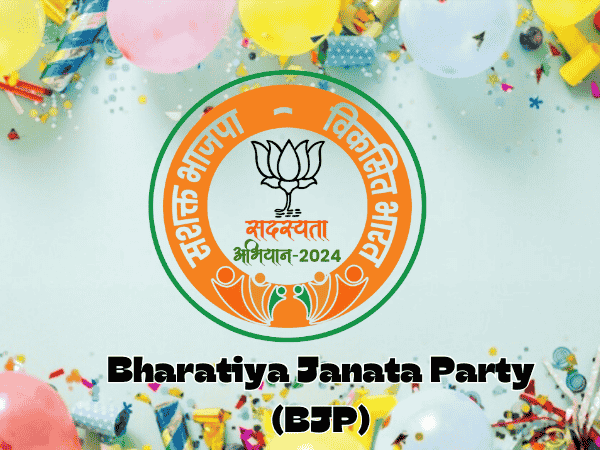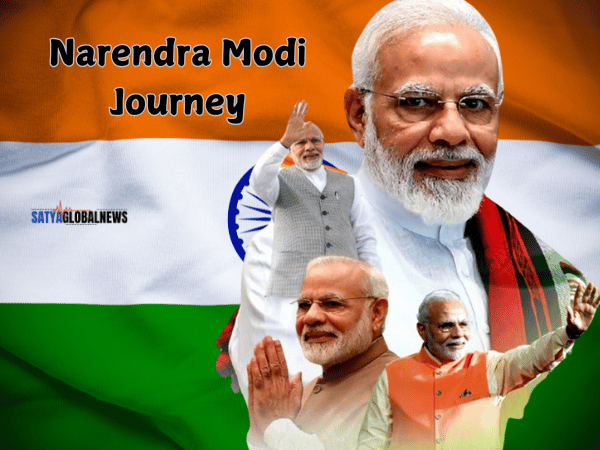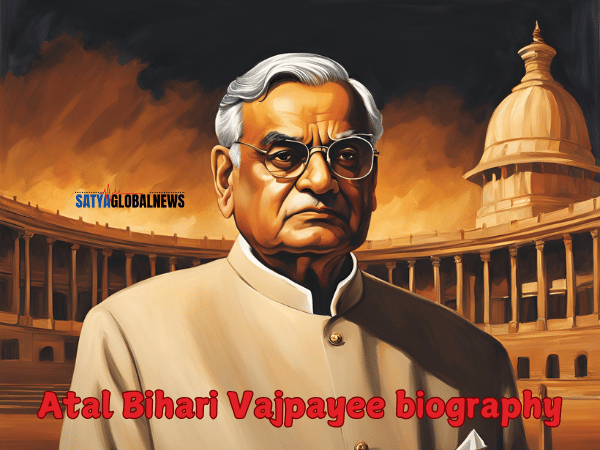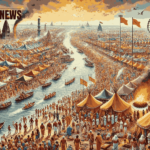Narendra Modi Biography: India’s 14th Prime Minister
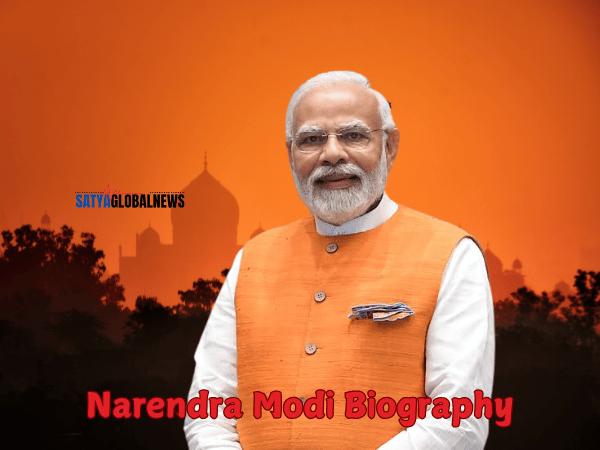
Narendra Modi Biography:- Modi is the 14th Prime Minister of India, serving since May 2014. Born on September 17, 1950, in Vadnagar, Gujarat, Modi rose from humble beginnings to become one of the most influential political leaders in India’s history. A member of the Bharatiya Janata Party (BJP) and the Rashtriya Swayamsevak Sangh (RSS), Modi became the Chief Minister of Gujarat in 2001 and served for over a decade, implementing significant economic reforms and strengthening the state’s infrastructure.

- Narendra Modi Biography
- Early Life and Education
- Early Political Involvement
- Chief Minister of Gujarat (2001–2014)
- Rise to National Politics
- Prime Minister of India (2014–Present)
- Economic and Financial Reforms:
- Social Initiatives:
- Foreign Policy and National Security:
- Controversies and Criticisms
- Personal Life
- Legacy
His tenure as Prime Minister has been marked by major initiatives such as Make in India, Digital India, Swachh Bharat Abhiyan, and the Goods and Services Tax (GST). Modi’s leadership is defined by a focus on economic reforms, national security, and promoting India’s presence on the global stage.
Modi’s rise in politics was not without controversy, especially due to his handling of the 2002 Gujarat riots, which continues to be debated. Despite criticism, his governance style has earned him significant support, and he led the BJP to major victories in the 2014 and 2019 general elections.
Known for his discipline, work ethic, and charismatic public persona, Modi’s impact on India’s political and economic landscape is undeniable. His leadership continues to influence the course of India’s future, while his policies and decisions have sparked discussions both within India and globally.
READ MORE :-Atal Bihari Vajpayee: A Life of Leadership, Vision, and Statesmanship
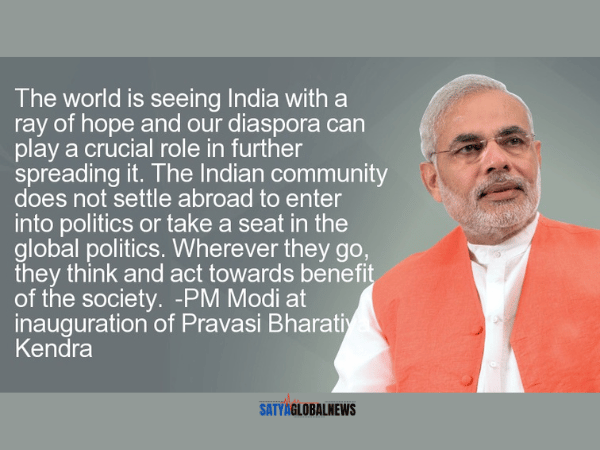
Narendra Modi Biography
Full Name: Narendra Damodardas Modi
Date of Birth: September 17, 1950
Place of Birth: Vadnagar, Gujarat, India
Political Party: Bharatiya Janata Party (BJP)
Profession: Politician
Spouse: Jashodaben Chimanlal Modi (married in 1968, estranged)
Parents: Damodardas Mulchand Modi (father), Heeraben Modi (mother)
Early Life and Education
Narendra Modi was born in the small town of Vadnagar in Gujarat, India. He was the third of six children in a lower-middle-class family. His father, Damodardas, ran a tea stall, and Modi helped him with the business in his early years. This humble upbringing played a significant role in shaping Modi’s values and work ethic.
From a young age, Modi showed an inclination toward leadership and public speaking. He was actively involved in organizing community events and was influenced by the teachings of the Rashtriya Swayamsevak Sangh (RSS), a right-wing Hindu nationalist organization. He formally joined the RSS as a teenager, which became a foundation for his political journey.
Modi completed his schooling in Vadnagar, where he was known for his participation in debates and organizing activities. Afterward, he went to the University of Delhi through distance learning to study political science, and later earned a Master’s degree in Political Science from Gujarat University.
Early Political Involvement
Modi’s political career began with the RSS, where he worked as a full-time pracharak (campaigner). His association with the RSS deepened as he took on leadership roles in the organization, helping with its outreach and organizational activities in Gujarat. Modi’s work in Gujarat earned him a prominent position within the RSS, and he became an important figure in the BJP (Bharatiya Janata Party) after joining the party in 1987.
During the early 1990s, Modi’s rise within the party was supported by his organizational skills, and he helped strengthen the BJP’s position in Gujarat. His reputation grew after he played a crucial role in the party’s successes during Gujarat’s elections.
Chief Minister of Gujarat (2001–2014)
In 2001, after the resignation of Keshubhai Patel, Modi was appointed as the Chief Minister of Gujarat. At the time, Gujarat was facing economic challenges, and Modi was tasked with revitalizing the state’s economy. His tenure as Chief Minister was marked by both significant economic reforms and controversial events.
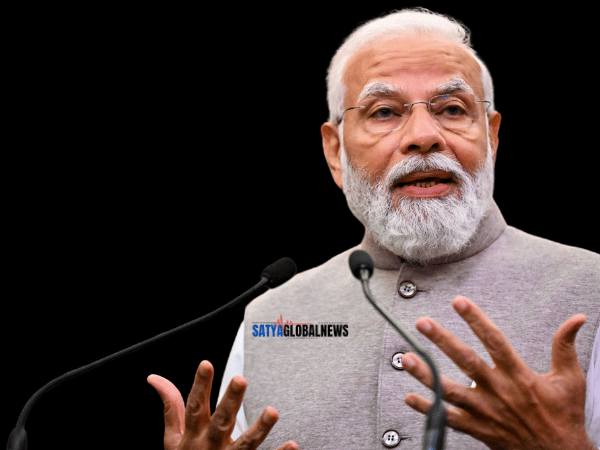
Key Achievements as Chief Minister:
Economic Reforms:
Modi focused on promoting Gujarat as an investment hub. His government created policies that facilitated industrial growth, attracting investments from both domestic and international companies. Gujarat became one of the fastest-growing states in India under Modi’s leadership, with notable developments in sectors like manufacturing, energy, and agriculture.
Infrastructure and Development:
Modi’s government implemented large infrastructure projects, such as the development of roads, ports, and industrial corridors, which contributed to Gujarat’s rapid economic development. The “Vibrant Gujarat” summits were launched to promote the state globally and attract foreign investment.
Controversial 2002 Gujarat Riots:
Modi’s tenure was also marked by the tragic 2002 Gujarat riots, which saw widespread violence between Hindus and Muslims. The state government faced severe criticism for its handling of the riots, with accusations of inaction or complicity. Modi’s role in the riots has been a subject of much controversy. However, he was later cleared of any wrongdoing by the Supreme Court-appointed Special Investigation Team (SIT).
Gujarat Model of Development:
Modi promoted the “Gujarat Model” as an example of good governance, emphasizing minimal government intervention, public-private partnerships, and rapid economic reforms. The model was hailed by his supporters, although critics argue that it often overlooked issues like poverty and inequality.
Rise to National Politics
After serving as Gujarat’s Chief Minister for over a decade, Modi sought to take his political career to the national stage. In 2013, he was appointed as the BJP’s candidate for the Prime Minister’s office ahead of the 2014 general elections.
2014 General Elections:
Modi led the BJP in the 2014 elections with a campaign focused on economic reforms, good governance, and national security. His slogan “Achhe Din Aane Wale Hain” (Good days are coming) resonated with voters across the country. The BJP won a decisive victory, securing 282 seats in the 545-member Lok Sabha, giving Modi a clear mandate.
Modi was sworn in as the 14th Prime Minister of India on May 26, 2014.
Prime Minister of India (2014–Present)
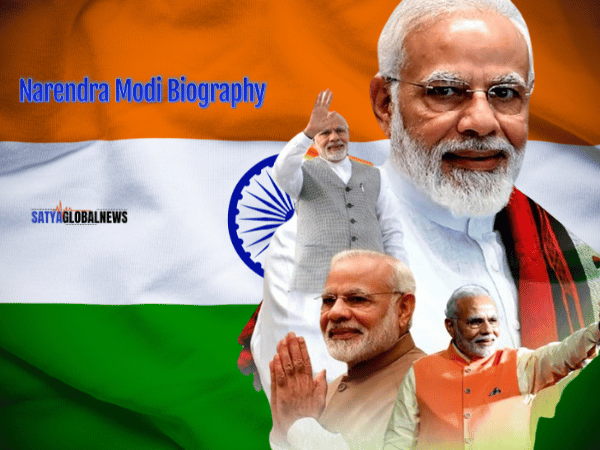
Modi’s tenure as Prime Minister has been marked by a series of major reforms, foreign policy initiatives, and efforts to reshape India’s economic and social fabric.
Key Initiatives and Reforms:
Economic and Financial Reforms:
Make in India: Modi launched the “Make in India” campaign to promote manufacturing in India, aiming to turn India into a global manufacturing hub.
Goods and Services Tax (GST): In 2017, the government implemented the Goods and Services Tax, which unified India’s complex tax system and simplified indirect taxation.
Demonetization (2016): In a bold move, Modi announced the demonetization of ₹500 and ₹1,000 notes, aiming to curb black money, counterfeit currency, and corruption. While the policy received praise for its intent, it also faced criticism for its execution and the hardship it caused to ordinary citizens.
Startup India: This initiative sought to promote entrepreneurship and create a supportive environment for startups in India.
Social Initiatives:
Swachh Bharat Abhiyan: Launched in 2014, the Swachh Bharat (Clean India) Mission focused on improving sanitation and eliminating open defecation across the country.
Ayushman Bharat: The Ayushman Bharat scheme aims to provide health insurance coverage to over 100 million low-income families, making it one of the world’s largest health insurance programs.
Foreign Policy and National Security:
National Security: Modi’s government has focused heavily on strengthening national security, especially in the context of terrorism and border security. Key military operations, such as the 2016 surgical strikes and the 2019 Balakot airstrike, were carried out under his leadership in response to cross-border terrorism.
Foreign Relations: Modi has worked on strengthening India’s relations with key global powers, including the United States, Japan, Israel, and Russia, while also asserting India’s interests in international forums such as the United Nations and the BRICS summit.
2019 General Elections:
Modi’s leadership was reaffirmed in the 2019 general elections, where the BJP secured an even larger mandate, winning 303 seats. Modi’s re-election bolstered his position as one of India’s most popular and influential leaders.
Controversies and Criticisms
Modi’s time as Prime Minister has not been without controversy:
Handling of the 2002 Gujarat Riots: Although he was cleared of wrongdoing, his role in the 2002 riots remains a contentious issue for many.
Economic Policies: The demonetization policy, though aimed at curbing corruption, was criticized for causing economic disruption, particularly for the poor and the unorganized sector.
Citizenship Amendment Act (CAA) and National Register of Citizens (NRC): These measures have sparked widespread protests, with critics accusing the government of discriminating against Muslims, leading to debates about secularism and religious freedom in India.
Personal Life
Narendra Modi’s personal life is quite private. He was married at a young age to Jashodaben, though the couple has been estranged for many years. Modi is a dedicated workaholic and adheres to a strict daily routine. Known for his discipline and focus, he is also a voracious reader and has an interest in yoga, poetry, and spirituality.
Legacy
Narendra Modi’s tenure has been one of the most transformative and debated in India’s history. He is credited with modernizing India’s economy, enhancing national security, and reshaping India’s global standing. However, his policies and approach to governance, particularly with regard to religious tensions and economic challenges, have sparked significant debate.
Despite the controversies, Modi’s leadership continues to shape India’s political, economic, and social landscape, making him one of the most influential political figures of modern India.

